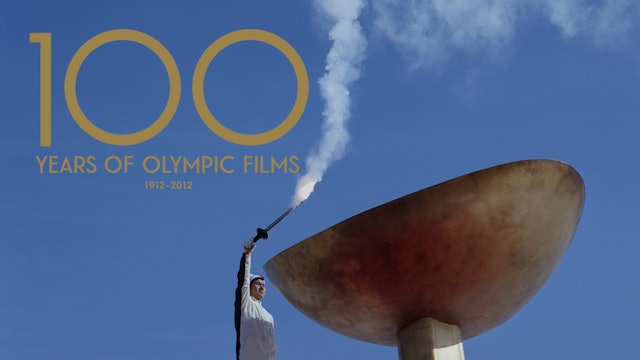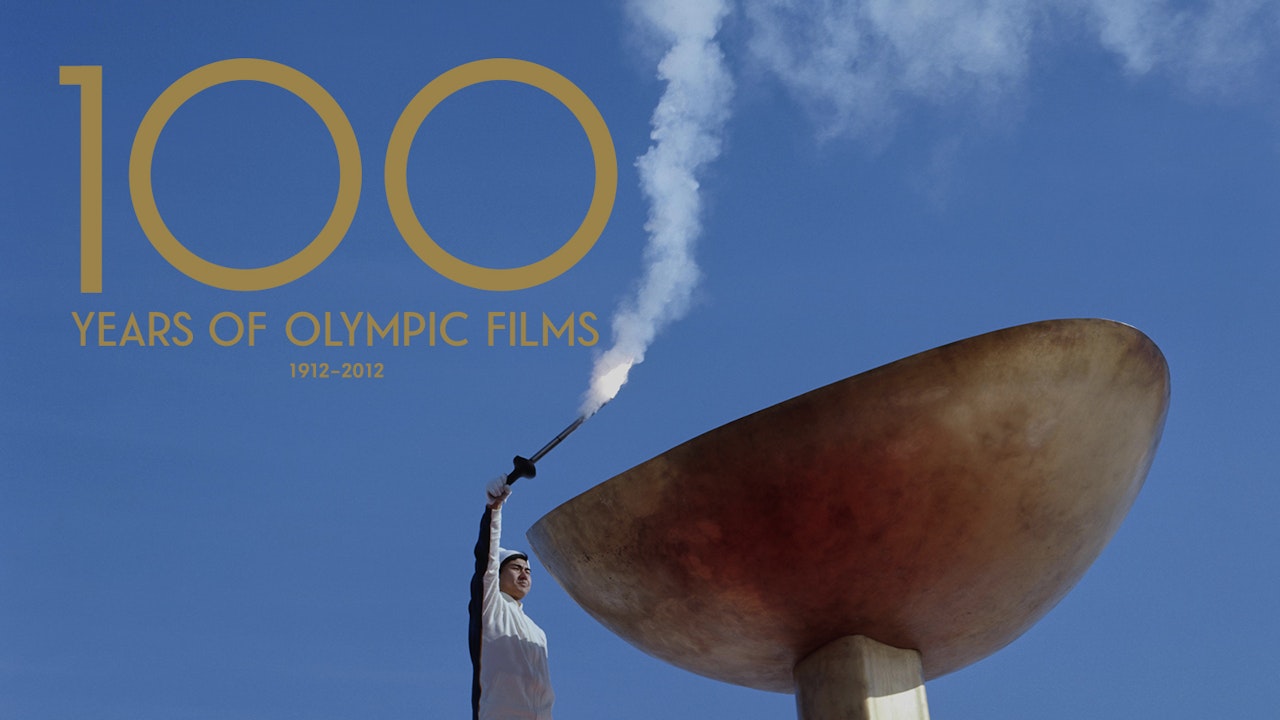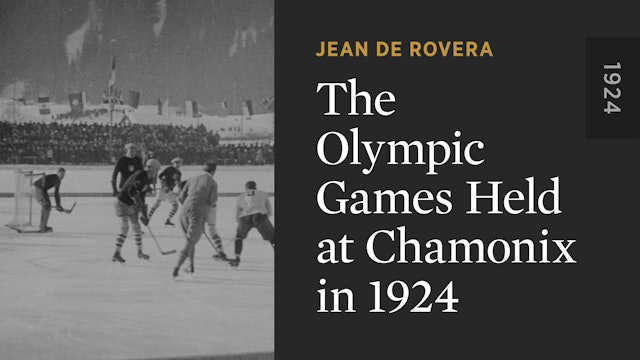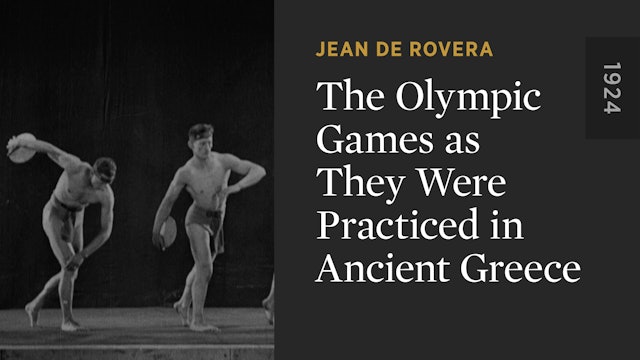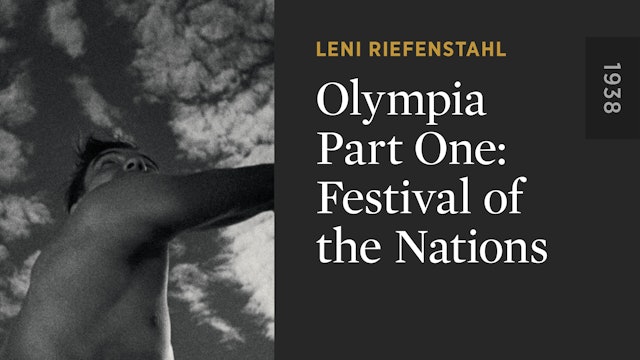100 Years of Olympic Films: 1912–2012
54 Episodes
Spanning fifty-three movies and forty-one editions of the Olympic Games, 100 YEARS OF OLYMPIC FILMS: 1912–2012 is the culmination of a massive, award-winning archival project encompassing dozens of restorations by the International Olympic Committee. The documentaries collected here cast a cinematic eye on some of the most iconic moments in the history of modern sports, spotlighting athletes who embody the Olympic motto of “Faster, Higher, Stronger”: Jesse Owens shattering world records on the track in 1936 Berlin, Jean-Claude Killy dominating the Grenoble slopes in 1968, Joan Benoit breaking away to win the Games’ first women’s marathon in Los Angeles in 1984. In addition to the impressive ten-feature contribution of Bud Greenspan, this stirring collective chronicle of triumph and defeat includes such documentary landmarks as Leni Riefenstahl’s OLYMPIA and Kon Ichikawa’s TOKYO OLYMPIAD, along with captivating lesser-known works by major directors like Claude Lelouch, Carlos Saura, and Miloš Forman. It also offers a fascinating glimpse of the development of film itself, and of the technological progress that has brought viewers ever closer to the action. Traversing continents and decades, reflecting the social, cultural, and political changes that have shaped our recent history, this remarkable movie marathon showcases a hundred years of human endeavor.
-
The Games of the V Olympiad Stockholm, 1912
Episode 1
Directed by Adrian Wood • 2016 • Sweden
Restored by the IOC and in 2016 edited into an absorbing chronicle, THE GAMES OF THE V OLYMPIAD STOCKHOLM, 1912 presents not just individual events but also the ceremonial ones before, during, and after the Games, which offer a vivid impression of Swedish ...
-
The Olympic Games Held at Chamonix in 1924
Episode 2
Directed by Jean de Rovera • 1924 • France
THE OLYMPIC GAMES HELD AT CHAMONIX IN 1924 chronicles the first full-scale Olympic Winter Games. In the film, the atmosphere is down to earth and relaxed, communicating the exuberance of winter sports.
-
The Olympic Games as They Were Practiced in Ancient Greece
Episode 3
Directed by Jean de Rovera • 1924 • France
A short tribute to the origins of the Olympic Games shot in 1924. This film is a brief series of tableaux, with athletes posing against a dark stage background and performing the ritual movements of the traditional sports and events.
-
 2:54:43Episode 4
2:54:43Episode 4The Olympic Games in Paris 1924
Episode 4
Directed by Jean de Rovera • 1924 • France
THE OLYMPIC GAMES IN PARIS, 1924 provides exhaustive and engrossing coverage of all the main sports on view. The exploits of Johnny Weissmuller (USA) and Paavo Nurmi (Finland) in Paris turned them into international sports heroes, and the coverage of th...
-
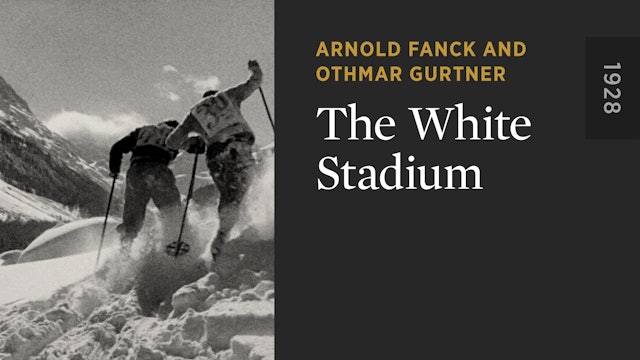 2:04:03Episode 5
2:04:03Episode 5The White Stadium
Episode 5
Directed by Arnold Fanck and Othmar Gurtner • 1928 • Switzerland
THE WHITE STADIUM (Das Weisse Stadion), the film of the II Olympic Winter Games St. Moritz 1928 in Switzerland, holds particular interest because it was directed by Arnold Fanck, a geologist turned filmmaker known for his sumptuous...
-
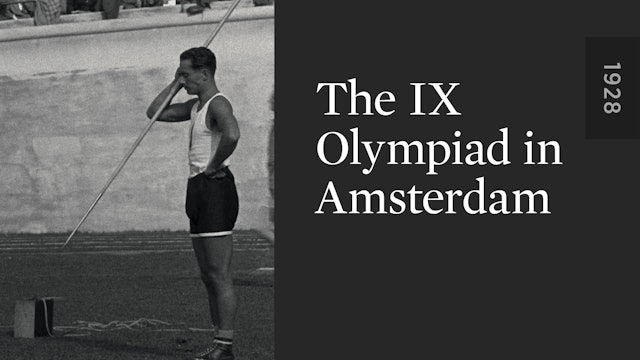 4:11:16Episode 6
4:11:16Episode 6The IX Olympiad in Amsterdam
Episode 6
1928 • Italy
Made by Istituto Luce, the Italian film company controlled by Benito Mussolini since 1925, THE IX OLYMPIAD IN AMSTERDAM may, understandably, highlight Italian participants, but it is the first Olympic documentary that describes the techniques of certain events with useful particulars
-
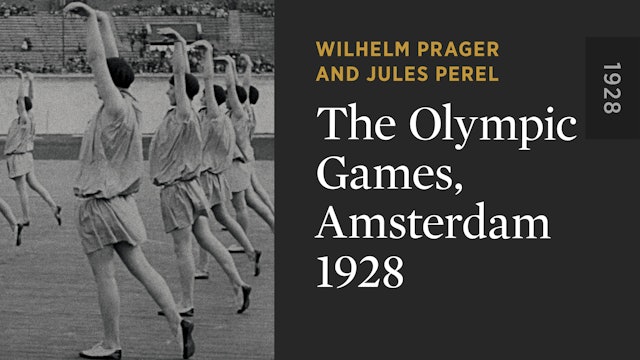 3:12:39Episode 7
3:12:39Episode 7The Olympic Games, Amsterdam 1928
Episode 7
Directed by Wilhelm Prager and Jules Perel • 1928 • Netherlands
Though shorter than the Italian film covering the same 1928 Olympic Games in Amsterdam, the intimacy on display in this Dutch film is more rewarding and less perfunctory.
-
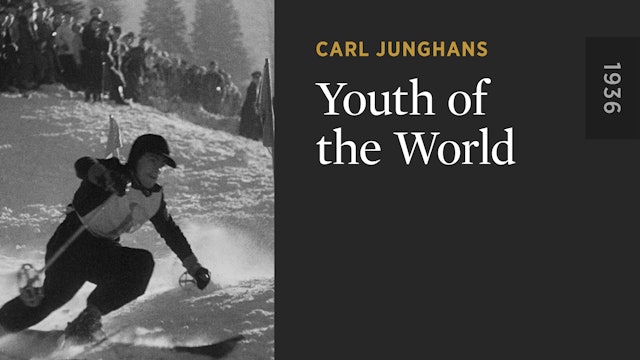 38:04Episode 8
38:04Episode 8Youth of the World
Episode 8
Directed by Carl Junghans • 1936 • Germany
This film, like Leni Riefenstahl's infamous OLYMPIA, was produced by Adolf Hitler's Reichsfilmkammer. YOUTH OF THE WORLD, a celebration of the 1936 Winter Games, may forgo narration, but its visuals throb with kinetic energy and visual poetry.
-
Olympia Part One: Festival of the Nations
Episode 9
Directed by Leni Riefenstahl • 1938 • Germany
More has been written about Leni Riefenstahl's OLYMPIA than about any other sports documentary in history. Starting with a long and lyrical overture, evoking the origins of the Olympic Games in ancient Greece, Riefenstahl covers twenty-one athletic e...
-
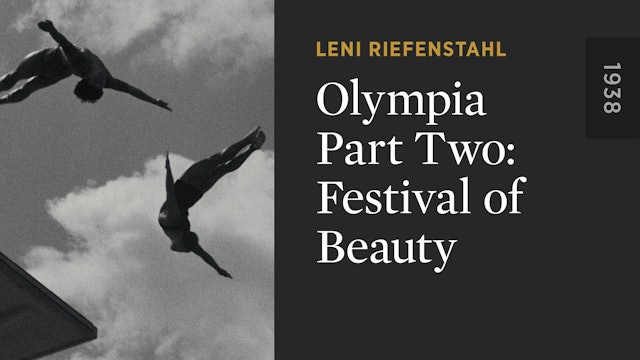 1:43:57Episode 10
1:43:57Episode 10Olympia Part Two: Festival of Beauty
Episode 10
Directed by Leni Riefenstahl • 1938 • Germany
More has been written about Leni Riefenstahl's OLYMPIA than about any other sports documentary in history. In part two of OLYMPIA, the cameras leave the main stadium and venture into the many halls and fields deployed for such sports as fencing, polo...
-
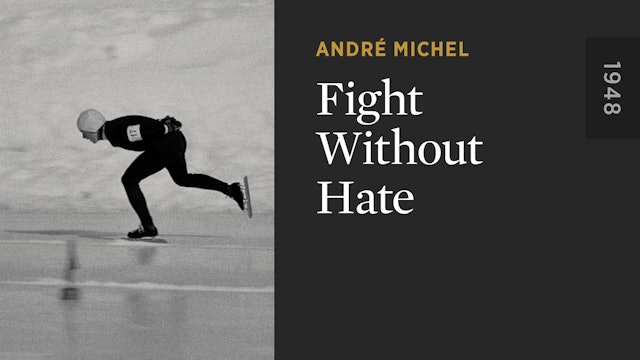 1:31:32Episode 11
1:31:32Episode 11Fight Without Hate
Episode 11
Directed by André Michel • 1948 • France
Twelve years had passed since the last edition of the Olympic Games when nations finally came together again, in the wake of World War II, to carry on the Olympic tradition at the V Olympic Winter Games St. Moritz 1948. The tone of André Michel's FIGHT WI...
-
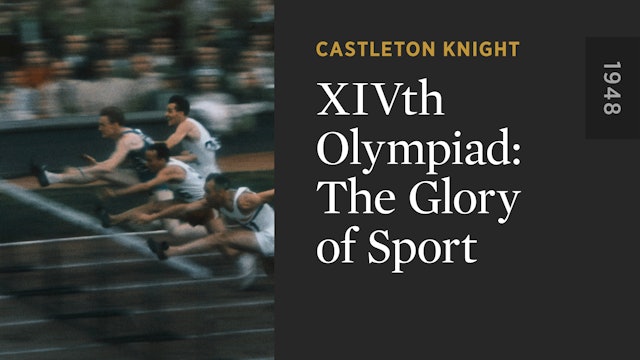 2:18:43Episode 12
2:18:43Episode 12XIVth Olympiad: The Glory of Sport
Episode 12
Directed by Castleton Knight • 1948 • United Kingdom
The official film of the Games of the XIV Olympiad London 1948 is the first in color and seeks to comprise both the winter and summer events from that year. The coverage of the sports cannot be faulted, as cinematographer Stanley Sayer marshal...
-
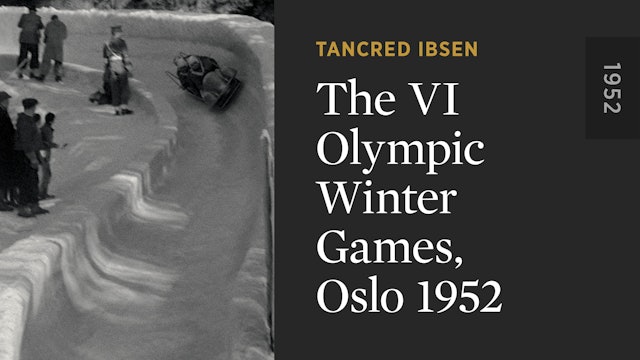 1:43:54Episode 13
1:43:54Episode 13The VI Olympic Winter Games, Oslo 1952
Episode 13
Directed by Tancred Ibsen • 1952 • Norway
Director Tancred Ibsen's penchant for depicting rustic life shines through in the bucolic scenes at the start of THE VI OLYMPIC WINTER GAMES, OSLO 1952. In addition to the exciting scenes of competition (Winter sports are followed with almost rabid fervo...
-
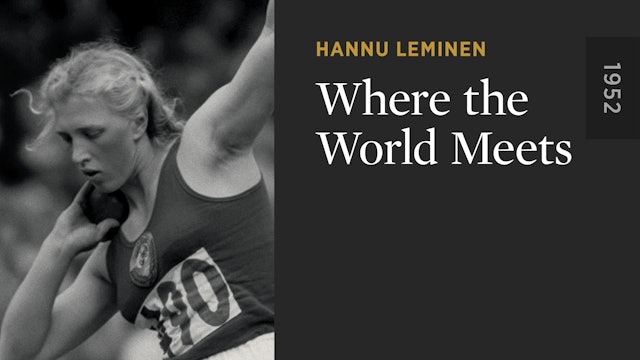 1:41:32Episode 14
1:41:32Episode 14Where the World Meets
Episode 14
Directed by Hannu Leminen • 1952 • Finland
Part one of Director Hannu Leminen's account of the Olympic Games Helsinki 1952, with its fierce patriotism and its sense of a nation welcoming the world, is redolent of the period, coming as it did only twelve years after the end of Finland's war with ...
-
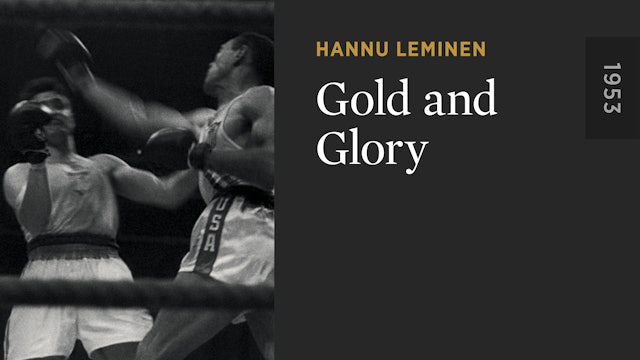 1:37:22Episode 15
1:37:22Episode 15Gold and Glory
Episode 15
Directed by Hannu Leminen • 1953 • Finland
Part two of Director Hannu Leminen's account of the Olympic Games Helsinki 1952, with its fierce patriotism and its sense of a nation welcoming the world, is redolent of the period, coming as it did only twelve years after the end of Finland's war with ...
-
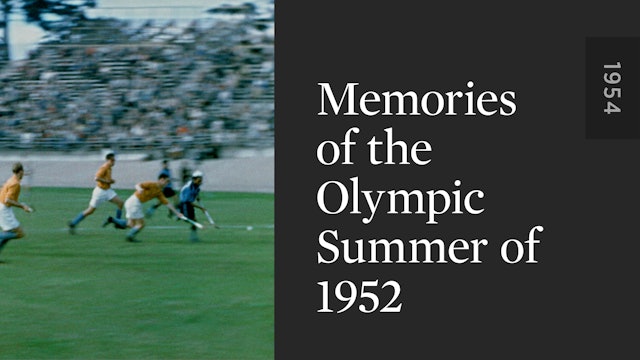 50:16Episode 16
50:16Episode 16Memories of the Olympic Summer of 1952
Episode 16
1954 • Finland
Given that the weather during the Olympic Summer Games in 1952 was miserable, with frequent bouts of rain, this fifty-minute color film is able to capture something more of the enthusiastic mood of the Finnish crowds, by comparison with the black and white of WHERE THE WORLD MEETS...
-
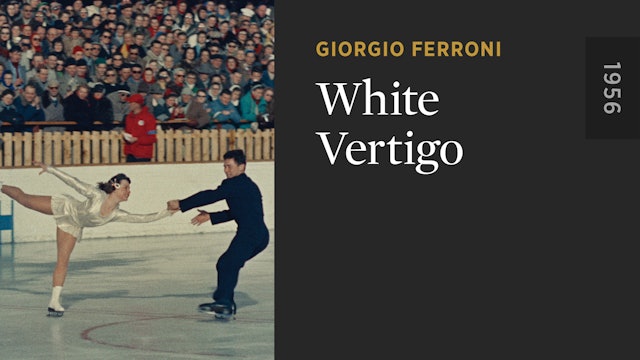 1:36:44Episode 17
1:36:44Episode 17White Vertigo
Episode 17
Directed by Giorgio Ferroni • 1956 • Italy
WHITE VERTIGO is one of the unexpected jewels of this Olympic films collection. The cinematography is by none other than Aldo Scavarda, who would film L'AVVENTURA for Michelangelo Antonioni three and a half years later. Director Giorgio Ferroni knows ho...
-
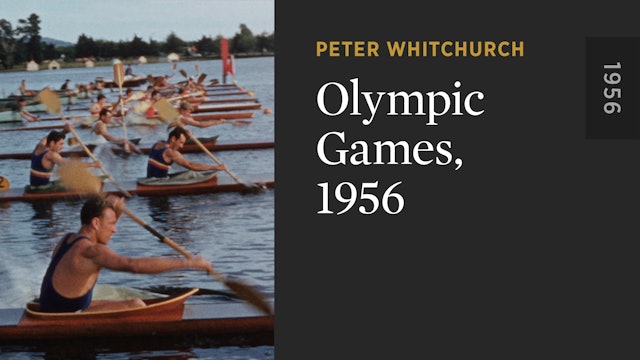 1:00:34Episode 18
1:00:34Episode 18Olympic Games, 1956
Episode 18
Directed by Peter Whitchurch • 1956 • Australia
OLYMPIC GAMES, 1956, directed by the documentarist Peter Whitchurch, was commissioned by the Organizing Committee for these Olympic Games. Historically, the film points to some encouraging situations in international affairs, with Hungary taking pa...
-
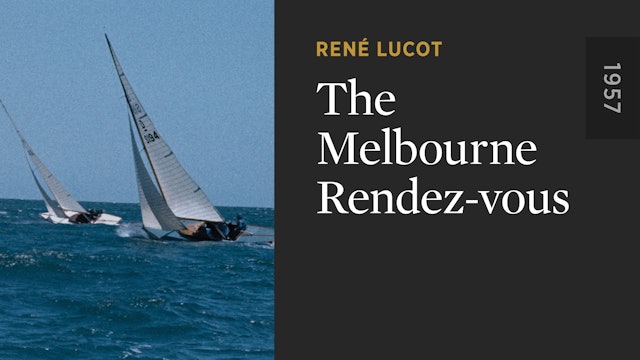 1:46:52Episode 19
1:46:52Episode 19The Melbourne Rendez-vous
Episode 19
Directed by René Lucot • 1957 • France
Of the two feature endeavors made around the Games of the XVI Olympiad in 1956, THE MELBOURNE RENDEZ-VOUS, directed by René Lucot, excels. Its tone is more observant and more inquiring than that of most Olympic films. Shooting in Agfacolor, Lucot and his cr...
-
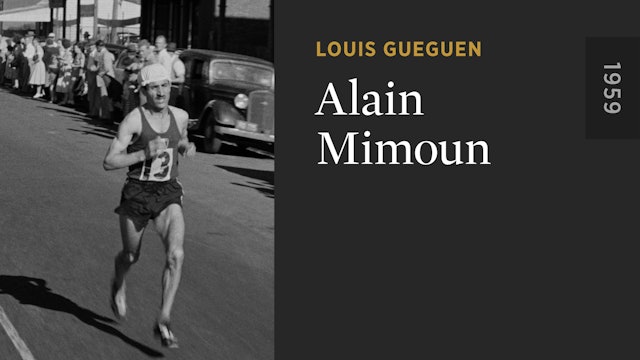 24:19Episode 20
24:19Episode 20Alain Mimoun
Episode 20
Directed by Louis Gueguen • 1959 • France
ALAIN MIMOUN, a short film made about the titular long-distance runner, is a jewel of a documentary, enhanced by a wonderfully laid-back jazz score by Alain Goraguer.
-
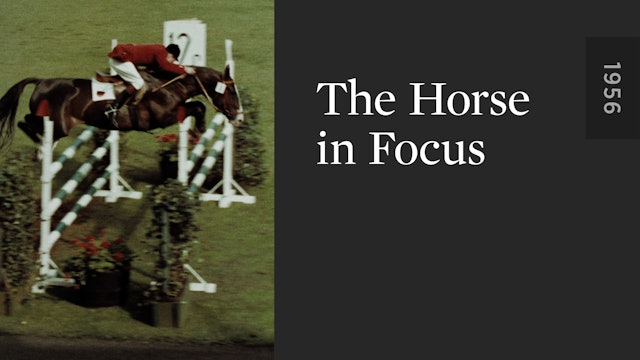 16:45Episode 21
16:45Episode 21The Horse in Focus
Episode 21
1956 • Sweden
This short film covers the equestrian segment of the 1956 Summer Olympics.
-
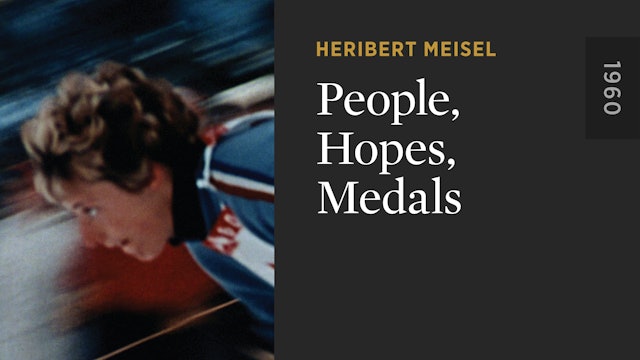 1:33:12Episode 22
1:33:12Episode 22People, Hopes, Medals
Episode 22
Directed by Heribert Meisel • 1960 • West Germany
This documentary of the VIII Olympic Winter Games Squaw Valley 1960, directed by Austrian sports journalist and sometime screen actor Heribert Meisel, is the first known visual record of an edition of the Winter Games in the United States. A West...
-
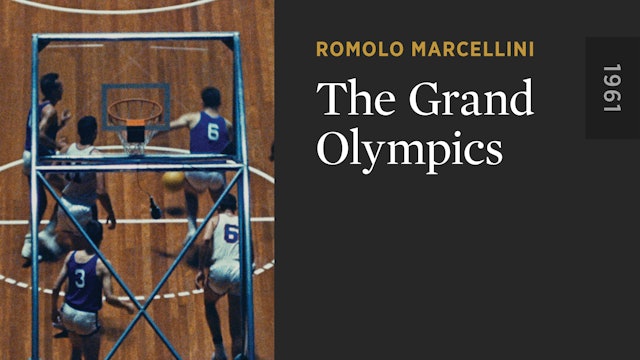 2:27:14Episode 23
2:27:14Episode 23The Grand Olympics
Episode 23
Directed by Romolo Marcellini • 1961 • Italy
THE GRAND OLYMPICS, the first Olympic film to be nominated for an Academy Award, celebrates the architecture and atmosphere of Rome while utilizing telephoto lenses to bring the action closer to the audience than ever before.
-
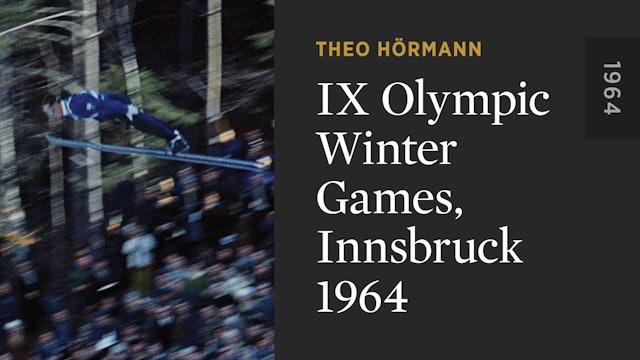 1:30:19Episode 24
1:30:19Episode 24IX Olympic Winter Games, Innsbruck 1964
Episode 24
Directed by Theo Hörmann • 1964 • Austria
Joy and good humor pervades Theo Hörmann's documentary record of the 1964 Games in Austria. Shot in Agfacolor, it nurtures a folkloric image of Tyrol, with its quaint mountain farms and obligatory yodeling. Hörmann deploys shots from a helicopter to pres...

